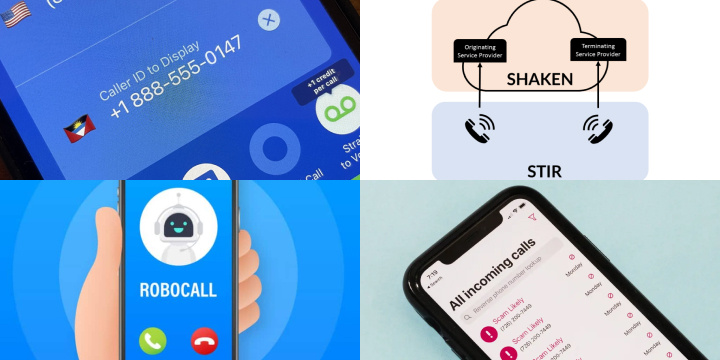What is Phone Number Spoofing?
Phone number spoofing is a technique that allows scammers to disguise their identity by displaying a fake caller ID on the recipient’s phone. It involves manipulating the caller ID to make it appear as if the call is coming from a legitimate source, such as a government agency, bank, or even a friend or family member.

Phone number spoofing is made possible through Voice over Internet Protocol (VoIP) technology, which enables callers to change their caller ID information easily. This technique is commonly used by scammers to trick individuals into giving away personal and financial information or to sell fraudulent products or services. Phone number spoofing has become a significant problem in recent years, with scammers using it to carry out various types of fraud and identity theft.
Types of Phone Number Spoofing
There are several types of phone number spoofing techniques that scammers use to carry out fraudulent activities. The most common types of phone number spoofing include:
- Number Masking: Scammers use a legitimate phone number to make the call but change the caller ID to a fake number to hide their true identity.
- Neighbor Spoofing: This technique involves spoofing phone numbers with the same area code and prefix as the recipient’s phone number to trick them into answering the call.
- Business Spoofing: Scammers use a fake caller ID to make it appear as if the call is coming from a legitimate business or organization to gain the recipient’s trust.
- International Spoofing: Scammers use international phone numbers to make it appear as if the call is coming from a foreign country to avoid suspicion.
- Robocalls: Robocalls are automated calls that use spoofed phone numbers to deliver pre-recorded messages to large numbers of people.
These different types of phone number spoofing can be used alone or in combination with other techniques to carry out various types of fraud, including phishing scams, identity theft, and financial fraud.
Why Do Scammers Use Phone Number Spoofing?
Scammers use phone number spoofing as a technique to hide their true identity and make it appear as if they are calling from a legitimate source. By disguising their phone number with a fake caller ID, scammers can trick individuals into answering their calls and gain their trust. This trust is then exploited to carry out various types of fraudulent activities, such as phishing scams, identity theft, and financial fraud. Phone number spoofing also allows scammers to evade detection and avoid legal consequences.

The use of Voice over Internet Protocol (VoIP) technology has made phone number spoofing easier and more accessible, allowing scammers to carry out their activities on a large scale. The anonymity and ease of use of phone number spoofing make it an attractive technique for scammers, making it crucial for individuals to remain vigilant and protect themselves from these types of scams.
Impact of Phone Number Spoofing
The impact of phone number spoofing can be significant for individuals, businesses, and society as a whole. Phone number spoofing can result in financial losses, identity theft, and damage to reputations. Scammers often use phone number spoofing to carry out phishing attacks, where they trick individuals into giving away sensitive personal or financial information. This information can then be used to steal money or commit identity theft, leading to long-lasting consequences for victims. Phone number spoofing can also impact businesses by damaging their reputations and leading to a loss of customer trust. In addition, the use of phone number spoofing for fraudulent activities can lead to increased distrust of legitimate callers, making it harder for individuals and businesses to communicate effectively. Overall, the impact of phone number spoofing is significant and highlights the need for better prevention and detection measures to combat this type of fraud.
How to Detect Phone Number Spoofing
Detecting phone number spoofing can be challenging as scammers often use sophisticated techniques to disguise their identity. However, there are some signs to look out for that can indicate a phone call is spoofed.
One of the most common indicators of phone number spoofing is receiving a call from a number that looks similar to your own phone number or has the same area code and prefix. Another red flag is receiving unsolicited calls from unfamiliar numbers or from organizations that you have not interacted with before.
Callers who request sensitive information such as passwords, social security numbers, or financial information are likely attempting to carry out a phishing attack.
Individuals can also use phone number lookup services or call blocking apps to identify and block known spam or spoofed phone numbers. It’s important to remain vigilant and not share any personal information over the phone unless you are confident in the identity of the caller.
Best Practices for Protecting Against Phone Number Spoofing
To protect against phone number spoofing, it’s essential to take several best practices. Firstly, individuals should never share personal information, such as social security numbers, bank account numbers, or passwords, over the phone unless they are confident in the identity of the caller.
It’s also recommended to use a call blocking app that can identify and block known spam or spoofed phone numbers. Additionally, individuals can enable a feature on their phone called “Silence Unknown Callers” to prevent calls from numbers that are not in their contacts list.

To avoid falling victim to phishing scams, individuals should be wary of unsolicited calls, even if they appear to be from a legitimate organization. It’s recommended to verify the caller’s identity by calling back on a trusted phone number.
Overall, remaining vigilant and adopting these best practices can go a long way in protecting against phone number spoofing and other types of phone scams.
What to Do If You’ve Been a Victim of Phone Number Spoofing
If you’ve been a victim of phone number spoofing, there are several steps you can take to mitigate the impact of the scam. Firstly, if you have shared any sensitive information, such as bank account or credit card numbers, you should immediately contact your financial institution to report the fraud and take necessary measures to secure your accounts.
It’s also important to report the incident to the relevant authorities, such as the Federal Trade Commission (FTC) or the local police department. This can help prevent others from falling victim to the same scam and can assist in tracking down the perpetrators.
To avoid future phone number spoofing attacks, it’s recommended to enable call blocking and caller ID features on your phone and be cautious when answering calls from unfamiliar numbers.
Overall, if you’ve been a victim of phone number spoofing, it’s essential to act quickly and take the necessary steps to protect yourself and prevent future incidents.
Legislative Measures: Government Responses to Combat Phone Number Spoofing
Phone number spoofing, the practice of altering the caller ID to display a false number, has become a significant concern due to its misuse by scammers and fraudulent actors. Governments worldwide have recognized the need to address this issue and have introduced various legislative measures to combat phone number spoofing effectively:
- Truth in Caller ID Act (United States): In the United States, the Truth in Caller ID Act makes it illegal to use misleading or inaccurate caller ID information with the intent to defraud, cause harm, or wrongfully obtain anything of value. Violators can face penalties.
- STIR/SHAKEN Framework (United States): The Federal Communications Commission (FCC) has implemented the Secure Telephone Identity Revisited (STIR) and Signature-based Handling of Asserted Information Using Tokens (SHAKEN) framework to authenticate caller ID information. This helps verify the legitimacy of calls.
- Nuisance Call Act (United Kingdom): In the UK, the Nuisance Call Act imposes regulations on nuisance calls and caller ID spoofing. It empowers regulators to take action against companies and individuals engaging in fraudulent practices.
- Robocall Mitigation (Canada): Canada has introduced rules to mitigate unwanted robocalls, including restrictions on caller ID spoofing and requiring telecommunications service providers to authenticate and validate calls.
- Anti-Caller ID Spoofing Regulations (India): India’s Department of Telecommunications has taken steps to curb caller ID spoofing, directing telecom service providers to implement measures to prevent fraudulent use of caller ID.
- European Electronic Communications Code (EECC): The EECC addresses the misuse of caller ID and mandates transparency and measures to prevent caller ID spoofing within the European Union.
- Global Coordination: Governments collaborate on an international scale to combat caller ID spoofing, sharing information and best practices to tackle this issue effectively.

These legislative measures underscore the seriousness with which governments are addressing the problem of phone number spoofing. By enacting laws and regulations and promoting international cooperation, authorities aim to protect consumers, enhance call authenticity, and curb the activities of scammers and fraudsters using this deceptive practice. As technology evolves, ongoing legislative efforts are essential to adapt to new challenges in combating phone number spoofing.
Future of Phone Number Spoofing and Prevention Techniques
As technology continues to advance, it’s likely that phone number spoofing techniques will become more sophisticated and difficult to detect. However, there are also new prevention techniques being developed to combat these types of scams.
One emerging technology is called “Caller Verified” which uses a digital certificate to authenticate the caller’s identity and ensure that the phone number is not being spoofed. This technology has been implemented by several major phone carriers and is expected to become more widespread in the future.

Other prevention techniques include the use of artificial intelligence and machine learning algorithms to analyze call patterns and identify potential spoofing attempts. Additionally, there is ongoing research into developing new anti-spoofing protocols and standards to improve the security of phone networks.
Overall, while phone number spoofing remains a significant problem, there is hope that emerging technologies and prevention techniques will help to mitigate the impact of these scams and improve the overall security of phone networks.
